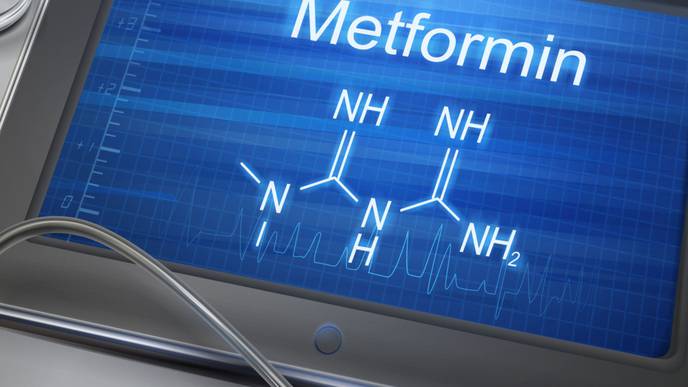ReachMD
Be part of the knowledge.™U of M Study Finds Metformin Reduces COVID-19 Viral Load, Viral Rebound

MINNEAPOLIS/ST. PAUL (5/02/2024) — A team of University of Minnesota researchers found that metformin, a drug commonly used to treat diabetes, can decrease the amount of COVID-19 virus in the body and lower the chances of the virus coming back strongly after initial treatment. The study was published in Clinical Infectious Diseases.
A higher viral load — the amount of virus in a person’s body — usually indicates a greater concentration of the virus, which can be important in understanding the severity of an infection and monitoring the effectiveness of treatments.
“The results of the study are important because COVID-19 continues to cause illness, both during acute infection and for months after infection,” said Carolyn Bramante, MD, principal investigator and an assistant professor at the U of M Medical School. She is also an internist and pediatrician with M Health Fairview.
In this phase 3 randomized clinical trial, the researchers tested metformin against a placebo in 1,323 adults infected with COVID-19. The group treated with metformin had a viral load that was about four times lower than the placebo at day 10. The metformin group also had less viral rebound than the placebo group.
The research team concludes that metformin treatment for adults recently infected with COVID-19 is an effective way to reduce the amount of the virus in the nose and to keep the amount of virus from becoming elevated again.
“Among the volunteers in this randomized trial, there was a more than 41% reduction of long COVID among those receiving metformin and a 58% reduction in hospitalization by 28 days. This new study explains why this occurred. Metformin reduced the amount of SARS-CoV-2 virus present, which likely accounts for why this $1 medication reduced hospitalizations and long COVID,” said David Boulware, MD, MPH, an infectious disease physician and professor at the U of M Medical School and M Health Fairview.
None of the outpatient treatments in current guidelines have been tested in adults who had prior infection. Further research is needed to understand how metformin works in those who had the virus before.
A computer simulator developed by U of M Medical School and College of Science and Engineering faculty accurately predicted metformin’s effectiveness against COVID-19 — helping steer the direction of the clinical trial. Similarly, the simulation also predicted the failure of medications such as hydroxychloroquine.
“These results are consistent with the model predictions for viral replication that we developed to identify antiviral drugs at the beginning of the pandemic,” said David Odde, PhD, co-author and biomedical engineering professor in the College of Science and Engineering. “This is another great example of how engineering tools can be used to predict clinical outcomes, steer research efforts and ultimately add to the body of knowledge around disease treatments.”
The trial was funded by the Rainwater Charitable Foundation, The Parsemus Foundation, UnitedHealth Group and Fast Grants. Drs. Bramante and Jacinda Nicklas’ time was funded by the National Institutes of Health [K23DK124654 and K23HL133604]. This research was also supported by the National Institutes of Health’s National Center for Advancing Translational Sciences under award numbers UL1TR002494 and KL2TR002492 via the Clinical and Translational Science Institute.
-30-
The University of Minnesota Medical School, School of Public Health, College of Science and Engineering and M Health Fairview served as the lead site.
###
About the University of Minnesota Medical School
The University of Minnesota Medical School is at the forefront of learning and discovery, transforming medical care and educating the next generation of physicians. Our graduates and faculty produce high-impact biomedical research and advance the practice of medicine. We acknowledge that the U of M Medical School is located on traditional, ancestral and contemporary lands of the Dakota and the Ojibwe, and scores of other Indigenous people, and we affirm our commitment to tribal communities and their sovereignty as we seek to improve and strengthen our relations with tribal nations. For more information about the U of M Medical School, please visit med.umn.edu.
About the College of Science and Engineering
The University of Minnesota College of Science and Engineering brings together the University’s programs in engineering, physical sciences, mathematics and computer science into one college. The college is ranked among the top academic programs in the country and includes 12 academic departments offering a wide range of degree programs at the baccalaureate, master's, and doctoral levels. Learn more at cse.umn.edu.
Facebook Comments